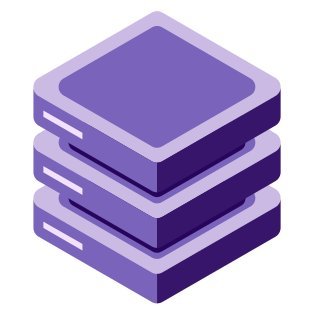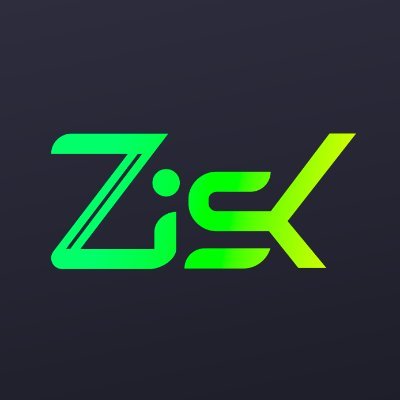zkVM Latest
Here we report on the progress of the leading builders in the zkVM ecosystem, documenting recent significant releases, technical breakthroughs and general updates.
Featuring: @DelphinusLab, @NexusLabs, @openvm_org, @powdr_labs, @SuccinctLabs, @ziskvm, @ProjectZKM, & @zksync.
🔹 Visit for more reports from across the industry 🔹

Nexus
🔹 Roadmap 🔹
@NexusLabs has unveiled its product roadmap through 2026, outlining plans to build a verifiable financial network:
Key milestones include:
• Launching an upgraded Layer 1 testnet for developers and infrastructure partners in late 2025
• Introducing a natively integrated financial application on the testnet
• Moving to Mainnet in early 2026 with bridges, oracles, and developer tools
• Enshrining the financial application on the Layer 1 Mainnet in mid-2026
• Releasing zkVM 4.0 to boost proving speed and scalability
• Continuing long-term development toward fully verifiable finance and expanded asset support
🔹 changelog 🔹
Nexus has released its 10.31.25 changelog, highlighting UI improvements, prover enhancements, and a new public status page:
Highlights:
• Nexus OS: The desktop layout now features a top navigation bar for easier access to tools and links. A survey banner gathers community input to shape product priorities.
• Gridcrew: Teams can include “meet the team” videos to showcase culture and values during crew selection.
• Status Page: A new page at provides real-time performance and maintenance updates.
• zkVM v0.3.5: Introduces full RISC-V M extension support, optimized proving performance, improved memory handling, and SDK upgrades for developers.
🔹 Visit for more reports from across the industry 🔹

OpenVM
@openvm_org has released version 1.4.1, introducing major GPU prover performance improvements through memory optimizations and an update to the stark-backend v1.2.1 for CUDA efficiency:
The new version enables proof generation for average @ethereum mainnet blocks in under 12 seconds, with costs as low as $0.0001 per transaction.
Additional updates include configurable segmentation in the CLI, compatibility with Rust nightly-2025-08-02, and several fixes for memory alignment, execution handling, and CUDA kernel management.
🔹 Visit for more reports from across the industry 🔹

powdr labs
@georgwiese of @powdr_labs has released a study covering how the Twist and Shout (by @srinathtv of @MSFTResearch and @SuccinctJT of @a16zcrypto) memory checking arguments can be adapted for hash-based proof systems using techniques from logup* (by @levs57):
The paper explains that by committing to matrices with one-hot rows, both protocols achieve significantly lower commitment costs, especially for small memories such as RISC-V registers in zkVMs.
The adapted methods provide efficient read-only (Shout) and read/write (Twist) memory arguments without requiring commitments to timestamps or memory values, improving scalability for larger tables and proof systems.
🔹 Visit for more reports from across the industry 🔹

Succinct
🔹 Research 🔹
@ronrothblum, Head of Cryptography of @SuccinctLabs, and Eden Florentz-Konopnicki of @TechnionLive, presented a new framework for constructing succinct ZKPs that rely only on one-way functions and make exclusively black-box use of them:
Their work shows that such proofs exist for NP relations computable by bounded-depth circuits, achieving negligible soundness error and additive communication overhead close to the witness size.
Central to their result is a statistically binding polynomial commitment scheme, a new primitive that enables efficient, black-box verification without compromising security or communication efficiency.
🔹 Proof-of-Reserves 🔹
Succinct, together with @UnitasLabs and @primus_labs, has introduced a privacy-preserving Proof-of-Reserves protocol for the USDu stablecoin:
The system verifies that reserves back USDu without exposing off-chain investment strategies. Using zkTLS and Succinct Private Proving, it ensures authentic data and confidential collateral verification, enhancing trust and security across decentralized finance.
🔹 Visit for more reports from across the industry 🔹

ZisK
@ziskvm has released v0.13.0, which enabled the team to achieve near real-time @ethereum block proving with an average proof time of about 7.5 seconds:
The setup uses 24 RTX 5090 GPUs across three clusters and introduces major improvements, including optimized GPU data layout, faster expression evaluation, and enhanced fault tolerance in distributed proving.
Note: The software remains under development and not yet recommended for production use.
🔹 Visit for more reports from across the industry 🔹

ZKM
🔹 Ziren v1.2.0 🔹
@ProjectZKM has released Ziren v1.2.0, an update improving interoperability and developer experience:
The version adds compressed-to-Groth16 proof conversion, a no-std STARK verifier, and upgraded network proving with cycle tracking and configurable distributed proving. A new CLI tool enables easier project setup and proof execution.
Additional features include @golang guest and partial Linux ABI support, Bitcoin guest integration, and Poseidon2/AES-128 precompiles. The release also updates documentation, dependencies, and security for greater stability.
The project also open-sourced Ziren’s GPU prover binaries to improve reproducibility and widen access to accelerated proving - foundational for community testing and the upcoming ZKM Proof Network.
🔹 x402 🔹
ZKM published an article explaining its role as a facilitator for x402 agent-to-agent payments:
Working alongside @MetisL2, @GOATRollup, and @LazAINetwork, ZKM fills in the missing layers - settlement, attribution, and cryptographic proof - making x402 trust-minimized and verifiable.
🔹 Media 🔹
In a recent episode of @HouseofZK Radio, @DacEconomy, Co-founder of ZKM, shared insights on how ZK intersects with artificial intelligence:
He discussed ZKM’s decision to build a universal zkVM based on MIPS32r2 for verifiable computation beyond blockchain, and explained how real-time proving can enable trusted AI inference. Ming also outlined @LazAINetwork's vision for socially-driven, verifiable data.
Full podcast:
🔹 Events 🔹
ZKM is a sponsor of Verifying Intelligence 3.0, hosted by @HouseofZK alongside @brevis_zk and @invisiblgarden:
The event takes place on Nov 19th at Cultural Vivo in Buenos Aires during @EFDevcon. It explores verifiable AI, privacy, and agent-to-agent payments - and is also supported by @MinaProtocol, @0G_labs, @EtherArgentina, @VeridiseInc, @OntologyNetwork, @Starknet, and @ZKVProtocol.
ZKM is also a sponsor or @EtherArgentina's hackathon, where they'll run their own dedicated track.
🔹 Partnerships🔹
ZKM announced a partnership with @VeridiseInc to verify the determinism of Ziren, its zkVM’s arithmetic core, using the Picus verification platform:
Veridise adapted Ziren’s Plonky3 constraints and ran analyses through @AuditHubDev. Initial results confirmed deterministic behavior for addition and subtraction in the AddSub chip. The teams plan to expand verification to full circuits and integrate checks into ZKM’s development workflow.
🔹 Visit for more reports from across the industry 🔹

4.41萬
49
本頁面內容由第三方提供。除非另有說明,OKX 不是所引用文章的作者,也不對此類材料主張任何版權。該內容僅供參考,並不代表 OKX 觀點,不作為任何形式的認可,也不應被視為投資建議或購買或出售數字資產的招攬。在使用生成式人工智能提供摘要或其他信息的情況下,此類人工智能生成的內容可能不準確或不一致。請閱讀鏈接文章,瞭解更多詳情和信息。OKX 不對第三方網站上的內容負責。包含穩定幣、NFTs 等在內的數字資產涉及較高程度的風險,其價值可能會產生較大波動。請根據自身財務狀況,仔細考慮交易或持有數字資產是否適合您。





